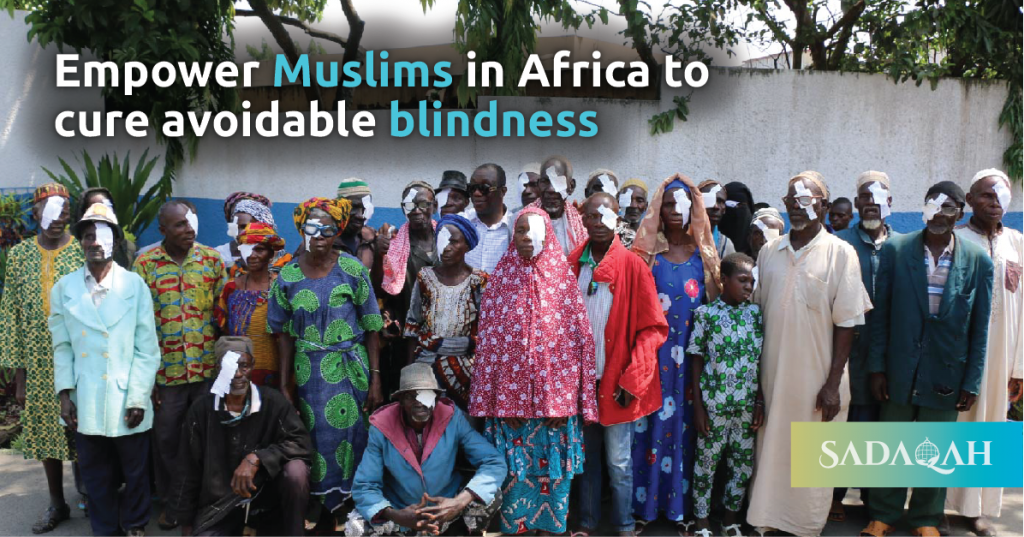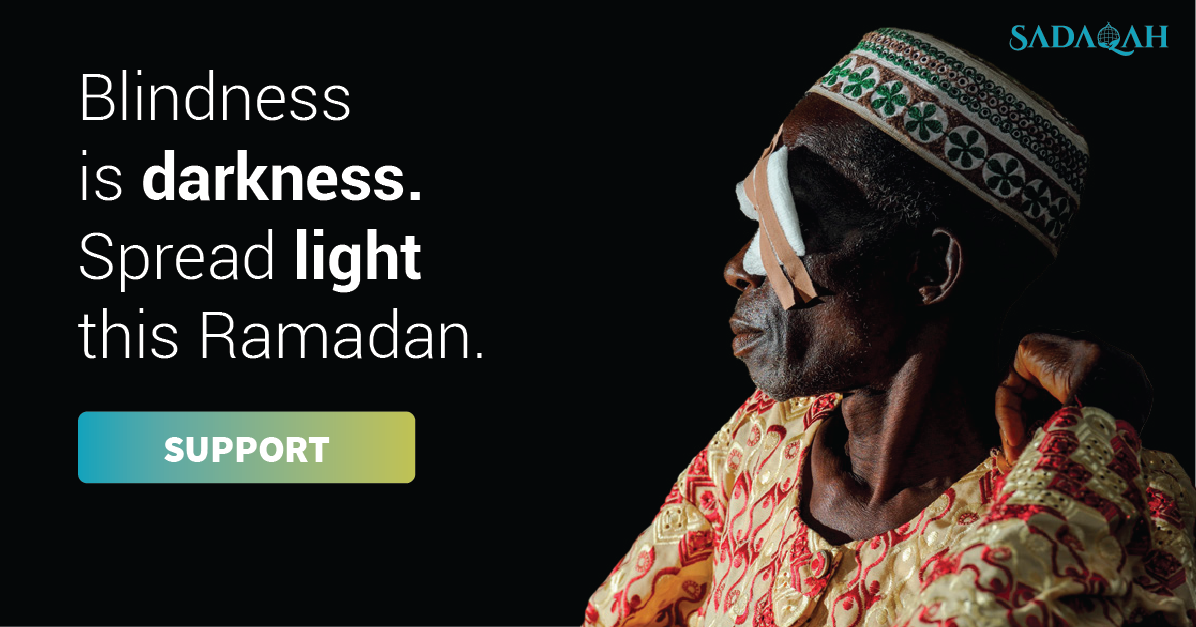Shockingly, there are approximately 40 million blind individuals in sub-Saharan Africa, and of these, 80% of cases are preventable or are curable. This happened mainly due to illness, disability, suffering as well as perpetuating cycles of poverty and inequality. About half of the blindness in the world is due to the watery clouding of the lenses in the eyes known as cataract. In reality, cataract eye treatment costs are next to nothing, and can be achieved through a simple surgical procedure lasting a mere 15 minutes. However being a continent that is concentrated with poverty and hunger; effective and accessible eye-care services are almost non-existent.
Help Muslims in Africa Fight Avoidable Blindness
Establishment of the Alliance to Fight Avoidable Blindness (AFAB) by the Islamic Development Bank (IDB)
This critical and urgent situation inspired the establishment of the “Alliance to Fight Avoidable Blindness” by the Islamic Development Bank (IDB), which has OIC member countries as its shareholders. One of IDB’s main missions is to promote human development, with a focus on strengthening livelihoods and prosperity, promoting education, and improving governance and wealth. The AFAB is restoring sight and enhancing life for tens of thousands of men, women and children in sub-Saharan African.
The AFAB brings together health ministries’ programs for the control of blindness, NGOs, training centres and donor institutions and volunteers. Its primary aim is to reduce the prevalence of cataract and improve access to eye care in 12 sub-Saharan African countries, with most having a Muslim population above 50%.
The AFAB model is also founded on volunteerism as well as teamwork and collaboration among stakeholders. Its strong partnership approach encourages skill and knowledge sharing, while taking into account the needs and priorities of the beneficiary countries and their people. Each partner brings unique expertise. NGOs send volunteer doctors who work under very basic conditions in hospitals, but are deeply committed to both their patients and local eye-specialists; donor institutions including IDB provide funding; health ministries build on existing knowledge of their countries’ needs and priorities and commit human resources and facilities; IDB also coordinates and monitors. Indeed this is teamwork that can light up thousands of lives.
Wow, what can be more incredible than to be able to give someone their sight back!
Treatment Phases
Each cataract treatment campaign has three phases. First, public awareness is raised through announcements in local newspapers, radio shows, and at local markets, mosques and churches, as well as by word of mouth, through town criers.
Second, patients are examined and undergo screening by health teams and cataract operations are performed by the visiting eye surgeons working with the local eye doctors from the national blindness control programs.
Finally, patients get a post-op examination by the visiting team, followed by two more check-ups by the local team about one week and one month later.
Partnership between Global Sadaqah and the IDB’s “Alliance to Fight Avoidable Blindness”
Global Sadaqah is the official Crowdfunding partner of the Islamic Development Bank, and specifically also for the AFAB. We’ve launched two campaigns already, “Help Muslims in Africa Fight Avoidable Blindness” and “The Gift of Sight for 2000 children in Africa”. Do check them out, especially in this blessed month of Ramadan where good deeds will be rewarded manifold!
Through these campaigns, together we hope not only to restore the sight of the poor people in sub-Saharan Africa, but to eventually restore their livelihoods, independence and confidence. It is not just the lives of patients that are transformed, but also those of communities and families. Children, who had to guide blind family members, are now free to go back to school and play with their friends, while their relatives can care for themselves and return to work or go back to their fields on their own.
Concluding Remarks
Since its launch in 2008, the IDB’s Alliance to Fight Avoidable Blindness (AFAB) campaign has achieved spectacular results. Thus far, the AFAB has conducted more than 250,000 eye examinations and 50,000 sight-restoring cataract operations on men, women and children. In a single week, nearly 500 patients might be examined and operated on in an Alliance campaign.
To put this in perspective, hospitals in member countries would only be equipped to treat about 10 cataracts cases a week. In addition, the AFAB has also trained more than 70 new specialists, technicians and administrative staff as well as doctors, helping local teams to be more effective all-round. According to Dr Sankara Paté, chief of ophthalmology at Koudougou Hospital, “Part of the capacity development aspect of the program is to ‘source’ for people in the regions who need further training. In this way, the AFAB helps create relationships between urban and rural ophthalmology teams.”
The AFAB tries to reach the most vulnerable people in greatest need, and concentrates on helping rural areas, using mobile teams to bring cataract surgery to the people who need it most – a strategy that avoids the costs and risks they would face when they travel to the city. According to Dr. Boubacar Kadri, Deputy Director of the Programme National de Lutte Contre la Cecité in Niger, “Now we can help those who need us the most”.
Finally, while it is true that the AFAB has achieved spectacular results thus far, but a lot more needs to be done! With additional donations from the crowd, it can restore the sight of many more people. And right on! This is where Global Sadaqah comes in. We hope to provide extended financial support to the AFAB so that together we can all help to give sight to many more thousands of people and help give them a new lease on life. In this blessed month of Ramadan, please do not wait and let us all circulate good and make the positive change together.


